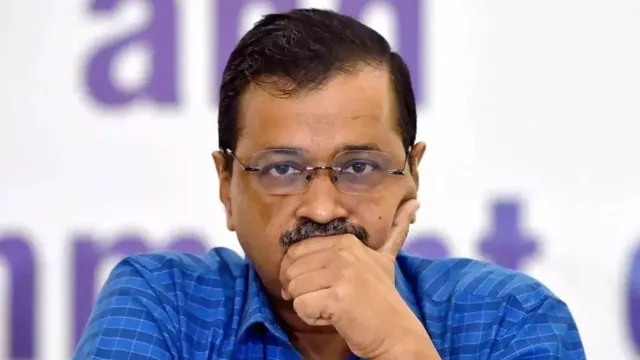Chief Minister of Delhi and leader of the AAP Arvind Kejriwal has been summoned by the Enforcement Directorate (ED) for the fifth time in relation to a money laundering case related to the Delhi liquor policy case.
So far, the investigation agency has sent four summonses to Arvind Kejriwal, who has ignored them, claiming they are “illegal” and “politically motivated”. It is acknowledged that the February 2 date of the new summons The ED had issued a fourth summons to the AAP leader, who was scheduled to appear before it on January 18. He ignored the summons, though, since the party claimed he wasn’t charged.
Along with other party leaders, Punjab Chief Minister Bhagwant Mann took a three-day trip to Goa with Arvind Kejriwal. Arvind Kejriwal received a third summons from the agency requesting that he come in for questioning on January 3. In addition, he disregarded the summons, claiming it was “illegal” and a plot to have him arrested. He explained that the party’s preparations for the Rajya Sabha election in Delhi and the Republic Day celebrations prevented him from showing up for questioning.
Arvind Kejriwal received these summonses as a part of the ongoing investigation into possible money laundering connected to the liquor policy, which the Delhi government rescinded in July 2023 as a result of accusations of corruption.
On two earlier occasions last year, on November 2 and December 21, he had declined to appear before the ED. On December 21, Kejriwal declined the summons and went to a 10-day Vipassana meditation camp instead. The Delhi government’s excise policy for 2021-22, which granted licenses to liquor dealers, is accused of enabling cartelization and favoring certain dealers who had allegedly paid bribes for it – a charge that the AAP has consistently denied.
After the policy was abandoned, Delhi Lieutenant Governor VK Saxena suggested a CBI investigation, and the Enforcement Directorate (ED) filed a case in accordance with the Prevention of Money Laundering Act (PMLA). Sanjay Singh, a party MP, and Manish Sisodia, Kejriwal’s former deputy, were all detained in relation to the case last year.
The excise policy aimed to replace a sales volume-based regime with a license fee for traders and revitalize the city’s flagging liquor business. For the first time, the policy offered discounts and promotions on the purchase of alcoholic beverages in Delhi.
The policy was abandoned as a result of Lieutenant Governor Vinai Kumar Saxena’s decision to launch an investigation into the purported irregularities in the regime. The AAP claimed that Anil Baijal, Saxena’s predecessor, ruined the plan with a few last-minute adjustments that caused revenue to be less than anticipated.

